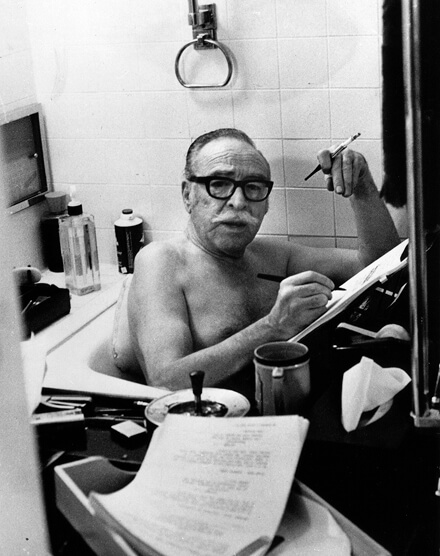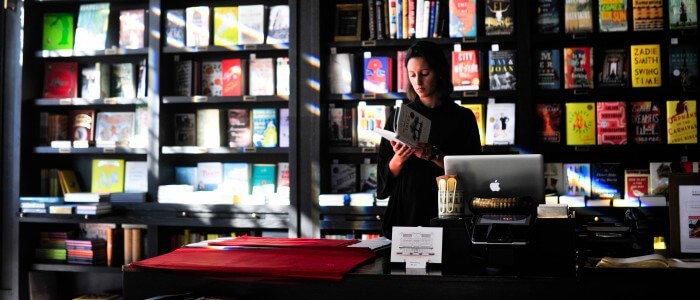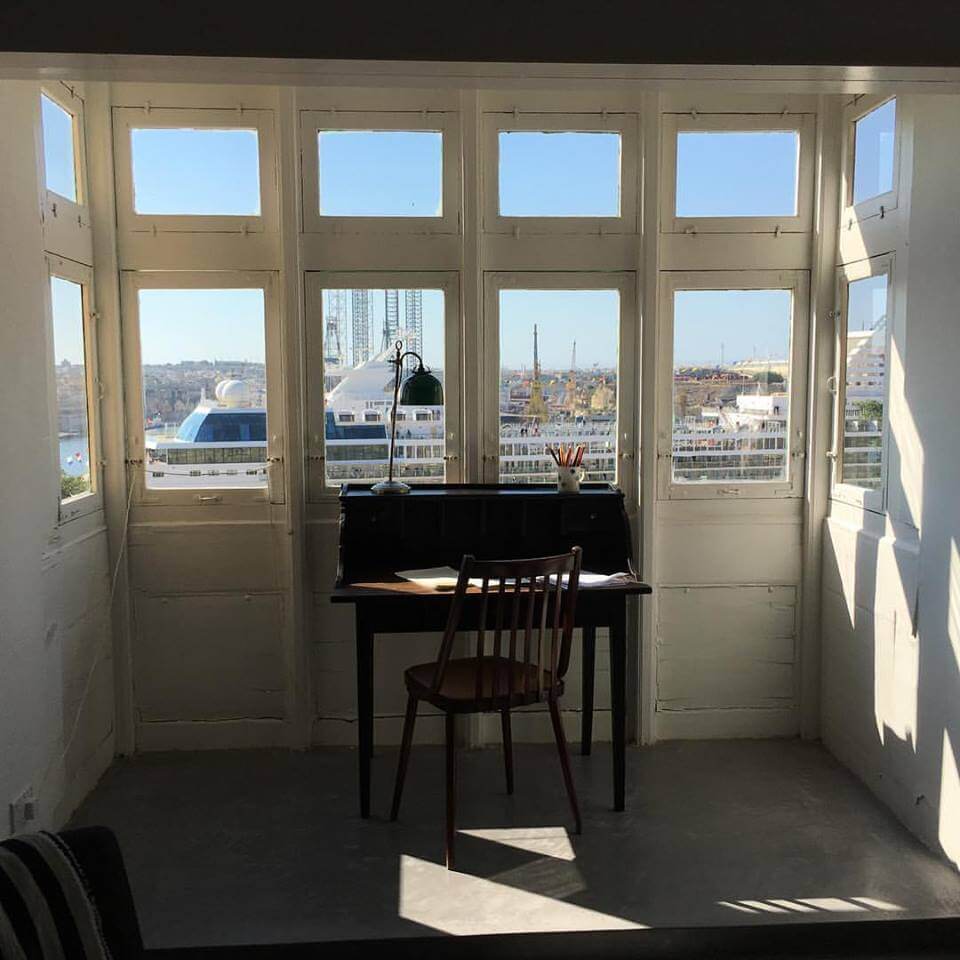If we leave our writing locations or writing spaces to chance, we no longer have control over our writing process. How do other authors do it – where do they write? Can we find better places to write? How do we need to design our writing spaces to increase our creativity and produce the results we crave?
Inhalt
Where it’s easy to write
We like to write in individual places that give us strength. I call themwriting rooms because the word implies a certain depth (and because it sounds so beautiful). Rooms can be as big or as small as you like, just think of outer space.
Another image I have in mind is the creative cave. Shielded from the outside world, the author can devote himself to his work. Caves have a special place in the history of art and humanity, as illustrated by the paintings in the Lascaux Cave.

Lascaux, France – (cc) Prof saxx
Different writing rooms
An author’s writing rooms are like windows to his mind. We see exactly what helps him to express himself creatively. The top rule: Nobody says that you can only have one writing room or that you have to commit yourself to certain rooms. They can change at any time and you can further develop them. Depending on the situation, each room will serve at least one of three different purposes:
- Inspiration
- Reflection
- Concentration
You can cover all three with one room, or try different combinations depending on your writing mood. Generally speaking, larger rooms are better for boosting creativity than small rooms. If your space is deeper, you’re more likely to be able to pick up vibrations that are in the air. In small rooms, you can reflect more purposefully and work in a more concentrated way. Another aspect is movement. Large spaces are also good because you might have several places to work from: by the window, at the table, on the couch, and so on. If you switch back and forth between individual phases, you fuel your imagination.
Incentive instead of comfort
Comfort is not the goal. If you are too full, you have no more motivation to write. Your rooms should make you active and encourage you to create something new. You can also relax after work.
Where writing is natural
Most of the time we write where writing comes naturally to us. The desk may have been made for writing, but in the end it’s just a social convention you don’t have to conform to.
Find writing rooms
Good writing spaces are an expression of your inner state. Finding a special place for you means making creative choices. Do you want to write at your home or somewhere else? Do you feel attracted to the classic places or unusual places work better for you?

Screenwriter in the tub –
(c) Mitzi Trumbo
Design writing spaces
Some spaces are more creative than others because they are simply more alive. Let nature into your rooms. Flowers or even a simple bowl of fruit can greatly change the atmosphere. If you don’t have a green thumb, try a few cacti first – they don’t need that much water. Favorite books, important objects or family photos can inspire you, as can evidence of your own creative achievements and progress (completed manuscripts, etc.).
Colors help influence your mood. Always look for what suits your individual style best. To avoid stress and be productive, you could choose calming blues or bright shades of green. You don’t necessarily have to paint the walls. Even the color of chairs or other furnishings can help. The color palette should definitely motivate you to work.
Dimmed light is better for creativity. Bright light reveals everything immediately, while in the twilight we feel freer to make mistakes.
The temperature is something very individual, but in principle it can be said: Too hot or too cold prevents everyone from writing.
Allow clutter
“Only a genius can rule chaos”
– ALBERT EINSTEIN
You’re allowed to be messy, just let the mess be. While order is important when it comes to getting things done, embrace clutter for inspiration. A cluttered room helps get the creative juices flowing.
Where there is no alternative to writing
Isolation or sociability – both have their charms. But you can only write if you are not distracted by putting words on paper. Writing must be there is no alternative. There must be no way out, no excuse. Writing in a coffee shop where everyone knows you won’t help you. You need to be left alone, even if it’s the unrest you seek. It should inspire you, but not keep you from working.
Where do you want to write?
I hope I was able to help you a little with this post. In the end, it’s your imagination – and it’s your writing space. Use everything you have to fully exploit your creative potential.

A few words about me: As a Writer-Director, I write my own stories. I wrote the eBook The Ultimate Reading Guide for students as a learning aid. I also give Writing Seminars and Film Workshops.






